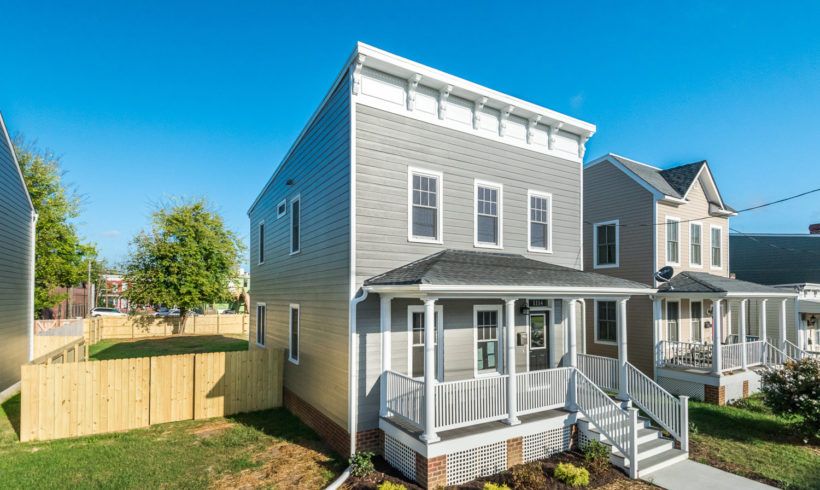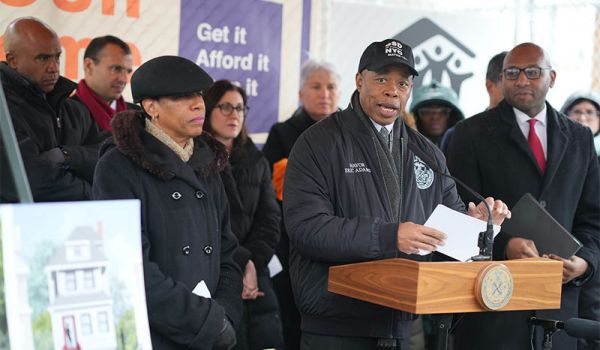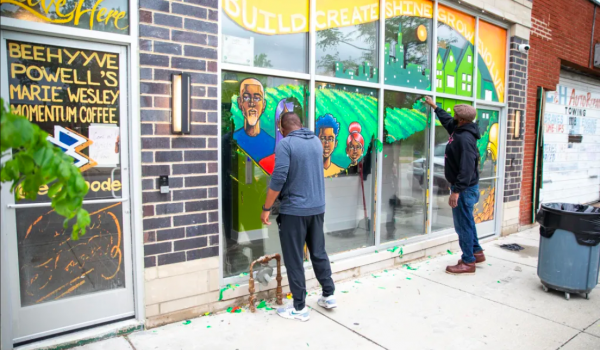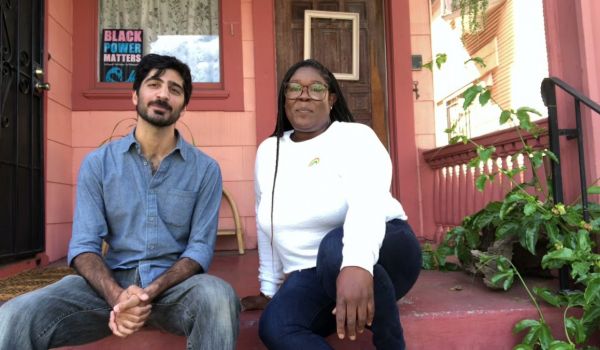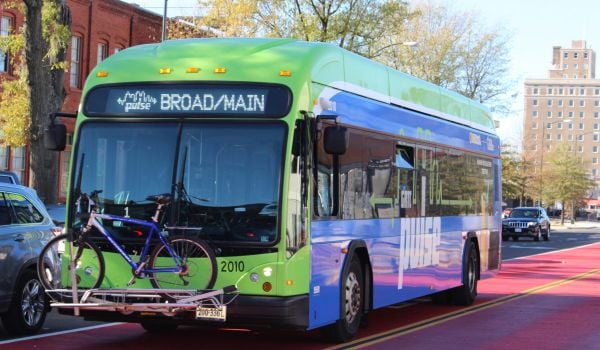Last December, the Maggie Walker Community Land Trust in Richmond, Va., completed and sold its first home. It’s a two-story, 1,680-square-foot house on a formerly vacant lot that looks pretty much like the other houses on the block. The land trust now has 38 more projects in the pipeline, and in the next five years, it expects to develop between 125-150 homes. By keeping the land in the ownership of the trust and selling only the houses to residents, the trust can make homeownership more affordable for families with low to moderate incomes, who then split the equity 50-50 with the trust when they move out.
The land trust was named for Maggie Walker, a black woman born in Richmond who was the first woman to create a bank in the United States. It’s gotten support from a number of local anchor institutions, including the Bon Secours Health System, which had been working on community development projects in the neighborhood for years before property values started going up, says Bob Adams, program development manager for the land trust.
“[Bon Secours] really embraced the idea of the community land trust, because they could see that a lot of the community development work that had happened in the East End of Richmond over the last ten years was really starting to show success,” says Adams, who also founded HD Advisors, a community development consulting firm in Richmond. “We’re now seeing a lot of private capital moving into that community. That’s one of those good news-bad news stories. You work in a community for a long time that has really been disinvested in, and you’re struggling to convince capital to come in there to support good projects, and then eventually you reach a tipping point in that community when suddenly the private sector begins to rush in.”
Maggie Walker Community Land Trust is trying to make sure that there are some homes available for people in Richmond whose incomes aren’t growing at the same rate as housing costs. It’s one of a handful of efforts highlighted in a new report from the Democracy Collaborative called “Community Control of Land & Housing: Exploring strategies for combating displacement, expanding ownership, and building community wealth.”
The report is an effort to showcase trends and strategies in the U.S. that shift the dynamic of control from private developers to communities as a whole, says Jarrid Green, a senior research associate at the Democracy Collaborative and lead author of the report. The report highlights five strategies: community land trusts, limited-equity cooperatives, resident-owned communities, community benefits agreements, and land banks.
But the report begins with a sweeping discussion of the history of displacement in the land that became the United States, starting with the arrival of the very first white settlers in the 1600s.
“Even a cursory look at public policy decisions in the United States over the past 200 years reveals that deeply entrenched racism have profoundly shaped and continue to shape our current system of land and home ownership, access, and valuation,” the report says. “It has also enabled elite and corporate interests to obtain ownership of vital assets in the very communities that have suffered from a history of disinvestment, neglect, and public abandonment — often in the name of renewal and revitalization.”
Green says it was important to start the 168-page report with such a deep look at the legacy of displacement because a lot of research into the issues only looks at the last few decades of public policy. Sometimes researchers trace current concerns back to the New Deal, but there’s more to the story.
“A lot of folks feel as though there’s a lot of injustice and inequality that’s rooted in a system that’s much larger than what folks talk about when they talk about affordable housing,” Green says. “Without that sort of longer-term, systemic lens and viewpoint, you sort of lack what we’re trying to actually resolve.”
Among the various strategies outlined, community land trusts currently have a lot of momentum in American cities, Green says. Limited-equity cooperatives are member-run communities, typically small to large multi-family housing complexes, that limit how much homeowners can take out of their homes when they sell them. Similarly, resident-owned communities are cooperatives that own the land in communities of manufactured housing. Community benefits agreements allow residents to extract public benefits from developers when they’re working on market-rate projects. Land banks help cities dispose of public or vacant and tax-delinquent land for community-serving purposes.
The report cites inclusionary zoning and linkage fees as tools that may create some affordable housing, “[but] do nothing to shift the underlying dynamics of developer control in the housing sector in favor of the communities most in need and at risk.” It recommends shifting that dynamic at a larger scale, perhaps using community benefits agreements to form or expand community land trusts, or establishing pipelines between land banks and community land trusts.
Another recommendation is for anchor institutions like hospitals and universities to use place-based investments to help communities get more control over their land, as Bon Secours is doing with the Maggie Walker Community Land Trust in Richmond.
“It’s important to shift the dynamic that we’ve seen, particularly one where a small group of people control land and housing,” Green says. “Our communities have been shaped to benefit folks who are particularly wealthy, and often this happens at the expense of the folks who are the most marginalized.”

Jared Brey is Next City's housing correspondent, based in Philadelphia. He is a former staff writer at Philadelphia magazine and PlanPhilly, and his work has appeared in Columbia Journalism Review, Landscape Architecture Magazine, U.S. News & World Report, Philadelphia Weekly, and other publications.
Follow Jared .(JavaScript must be enabled to view this email address)

